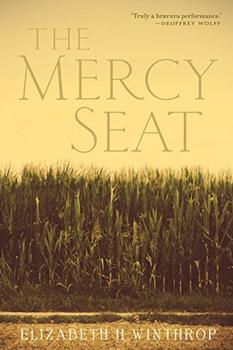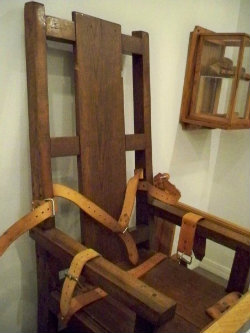Summary | Excerpt | Reviews | Beyond the Book | Read-Alikes | Genres & Themes | Author Bio

Critics' Opinion:
Readers' Opinion:
First Published:
May 2018, 240 pages
Paperback:
Apr 2019, 272 pages
 Book Reviewed by:
Book Reviewed by:
Kate Braithwaite
Buy This Book
This article relates to The Mercy Seat
The Mercy Seat is inspired by true events. In the acknowledgements, the author, Elizabeth H. Winthrop, says that the character Willie Jones is based loosely on two men: Willie McGee and Willie Francis.
Willie McGee, a young black man, was arrested in 1945 in Laurel, Mississippi when a white woman accused him of breaking into her house and raping her at knife-point. Although no white man had ever been given the death sentence for rape in Mississippi, McGee, after a trial that only lasted half a day and jury deliberations of less than five minutes, was found guilty and sentenced to death. Not everyone believed he had committed the crime. Despite suggestions that the sex was consensual and a vigorous campaign to assert McGee's civil rights, he was electrocuted in May 1951.
Willie Francis was just sixteen when he was sentenced to death for the murder of a local pharmacist in St. Martinville, Louisiana. The black teenager's execution by electric chair was scheduled for May 3, 1946. The current was switched on but Francis did not die and it was later determined that a drunken guard and inmate had wrongly wired the chair six months earlier. Although support grew to take another look at Francis's case, the death sentence was eventually confirmed by the Supreme Court and Willie was electrocuted just over a year after his original date.
 The Mercy Seat describes Louisiana's electric chair known as Gruesome Gertie, in close detail. Eighty-seven convicts were electrocuted in Gruesome Gertie until 1991, when Louisiana switched to using lethal injection. Today, the chair is on display in the Louisiana State Penitentiary Museum in Angola.
The Mercy Seat describes Louisiana's electric chair known as Gruesome Gertie, in close detail. Eighty-seven convicts were electrocuted in Gruesome Gertie until 1991, when Louisiana switched to using lethal injection. Today, the chair is on display in the Louisiana State Penitentiary Museum in Angola.
Throughout The Mercy Seat, Winthrop does not shy away from the realities of segregation and racism during the Jim Crow era in America. The prosecutor, Polly Livingstone, for example, hopes that the country has made progress during his lifetime and keeps a postcard from a lynching his father took him to as a boy. Postcards of lynchings were so commonly sold and sent at the beginning of the twentieth century that the Postmaster General banned the cards in 1908. Polly remembers buying the postcard at a gas station and "wonders which is worse, to be lynched or to be shocked to death in an electric chair. There was a time when he was sure there was a difference, but now that he's had a hand in it, he wonders if it really matters in the end what kind of justice it is – mob or legal – when the end result is death."
Filed under Books and Authors
![]() This "beyond the book article" relates to The Mercy Seat. It originally ran in May 2018 and has been updated for the
April 2019 paperback edition.
Go to magazine.
This "beyond the book article" relates to The Mercy Seat. It originally ran in May 2018 and has been updated for the
April 2019 paperback edition.
Go to magazine.





The Funeral Cryer by Wenyan Lu
Debut novelist Wenyan Lu brings us this witty yet profound story about one woman's midlife reawakening in contemporary rural China.
Your guide toexceptional books
BookBrowse seeks out and recommends the best in contemporary fiction and nonfiction—books that not only engage and entertain but also deepen our understanding of ourselves and the world around us.